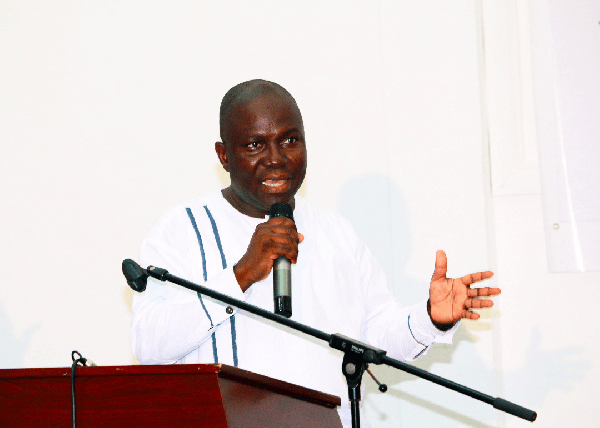The Director of Environment for Development (EfD) Ghana is advocating removal of subsidies on premix fuel for fishing activities. According to him, instead of subsidising the fuel – which can make it easier for more people to continue fishing in the seas and ultimately deplete stock – government should channel the funds into providing alternative livelihoods for young people in fishing communities.
This, he noted, will reduce the stress on fish stock and make more sustainable the closed season initiative introduced by government through the Ministry of Fisheries and Aquaculture to help salvage the country’s depleting fish stock.
“Some of us are asking for government to go a step further by gradually weaning young fishers out of fishing by providing them alternative livelihoods. Over time, when they realise there are other things they can do and derive the same or even more benefit they will not see the need to be in season; so, by that we can reduce the fishing capacity.
“This is what I propose. Right now, government is subsidising premix fuel; from previous records, cost to government averages about US$40million. In 2021, it was over GH¢330million.
“Now, if you withdraw the subsidy, there is so much you can do with that money. One thing you can do with that subsidy is use it to train the youth – engage them in all kinds of economic activities. You can use it to help them acquire skills and become tilers, masons, dressmakers among others; and use some to even improve the education they receive in the communities,” he suggested.
Professor Akpalu was speaking with journalists on the sidelines of the 17th EfD Annual Meeting opening ceremony in Accra, and posited that even though the closed season initiative is proving effective in terms of replenishing stock after each season, research has also shown that shortly after the fishing season begins stock begins to deplete.
“From the data, if you look at the catch volumes there is an indication that when the season is closed and reopened, catch levels go up; which means that the stocks are able to replenish somehow even though the period (1 month) is short.
“This is an indication that the closed season has potential to rejuvenate the stock. However, shortly after one month, catches come down to the same level they were before the season was closed – which means you cannot just have a closed season without complementing it with other measures or strategies,” he said.
He lauded the Ministry of Fisheries and Aquaculture for partnering with his outfit to carry out some work, and also commended the Ministry for implementing some strategies like placing a cap or limit on the number of canoes that can fish in the country’s waters; a move aimed at limiting fishing capacity to save stock.
“We do a lot of policy-focused research that can influence the way policies are made; develop research capacity of junior researchers; and develop capacity of policymakers.
“Over the four years that we’ve been established, we have been able to work closely with the Ministry of Fisheries and Aquaculture Development. We have been very instrumental in trying to support the ministry with all kinds of research ideas which require input from academia or researchers,” Prof. Akpalu noted.
EfD-Ghana), established in 2019 as one of the 13 centres of the Sida-funded Environment for Development (EfD) initiative, contributes to promoting the sustainable management of Ghana’s Natural resources through policy-relevant research, policy engagement and capacity development.










